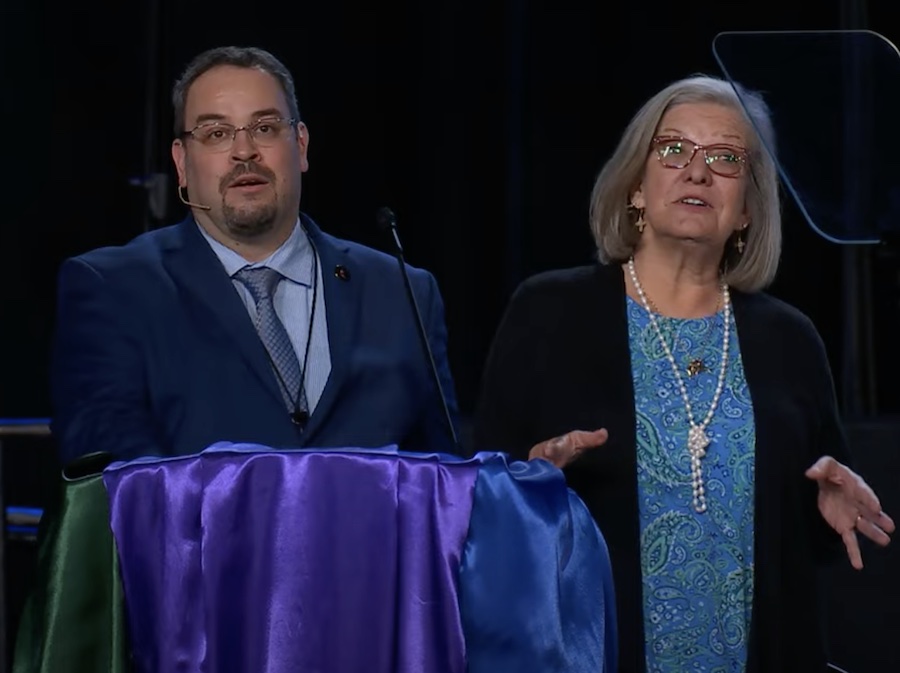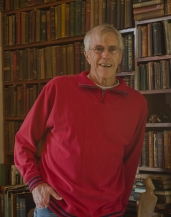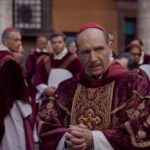I am blessed to have grown up Methodist. I had some other religious influences in my life (such as my mother’s fundamentalism) but, basically, I was Methodist from day one.
My home church was the major church in a county seat town in Indiana. What I remember is Sunday school, youth group, church camp, and many friends. I remember (at least for a while) monthly family nights at the church. I remember we delivered boxes at Christmas and Easter. I remember a lot of theological diversity and discussion (one Youth Fellowship program was on the Virgin Birth).
We had pastors who graduated from Boston School of Theology and some who graduated from Asbury Theological Seminary. Within the congregation were the educated and uneducated, community leaders and hourly workers, wealthy and not so wealthy, Republicans and Democrats. Three persons entered the ministry about the same time I did. I committed myself to total abstinence in high school, and to a moral system which preached against foul language, racial segregation, smoking and sexual impurity.
I am blessed to have pastored in the North Indiana Conference (before merger). Our conference was second in advanced giving in the denomination. Our camping program was enrolling (at least for a period of about 10 years) 3,000 senior high students and more than 2,000 junior high students per summer. Annual conference sessions were like family reunions.
A lot of this changed at the time of the Methodist-Evangelical United Brethren merger (1968-1972). This was a time of student unrest, social unrest, and theological upheaval (everything from the death of God and liberation theology to the Jesus People and the charismatic movement). Suddenly there were caucus groups, political lobbying and introduced quota systems.
I was involved in some of that because I was conference coordinator of Youth Ministries for some time and we sought youth representation not only at annual conference but on general boards and agencies. I became involved in Good News and then several evangelical renewal groups about this time. Still, despite some of our differences within the denomination, we had a sense of shared moral values.
I mention these things only to note the contrast from those earlier days to the present. In the late 1970s I began attending some general church agency meetings (representing Good News) and then as a delegate or alternate to general and jurisdictional conferences. I remember my first General Conference as a delegate. There was much talk of unity and love. However, when the vote was taken and announced on action to uphold the church’s historic stand on human sexuality, particularly in regard to the practice of homosexuality, there was picketing and disruption and demonstrations.
If we, just moments before, had referred to ourselves as one big happy family, what happened? We were a big happy family no longer. Placards spoke of injustice and hatred exhibited in the vote. I thought to myself—a happy family? It was more like going home for Thanksgiving and some of the family members were marching around the dinner table with placards objecting to the food grandma was serving.
The sense of unity and common witness began, and is continuing to, disintegrate. We can speak of inclusiveness and a big tent and loving one another, but the reality is that we have been and are deeply divided. But won’t it be better for United Methodism now that one-fourth of U.S. churches have disaffiliated?
The recent Charlotte General Conference spoke of a new day, new beginnings, new energy and a great future, but the words have a hollow sound. People in the pew are wondering whether the church, that is, the “new” United Methodist Church, still supports the traditional values we grew up with. I speak here not of doctrinal issues (the bigger issue really) but of those things that have been part of Methodism’s moral and social ethos for ages.
I checked the Church and Society webpage on the internet. There is nothing on the Biblical view of marriage, the importance of fathers and mothers, or about husbands and wives. Nothing about the connection between crime, poverty, homelessness, and one of the basic causes behind these problems, mainly, in the break-up of the family. Nothing about the problem of cursing, violence and crime. Nothing about alcohol and tobacco. Nothing about modesty and moral purity. Nothing about Sabbath observance.
We appear to be going in a different direction.
The Church and Society web page lists five major moral priorities the church must deal with in the coming quadrennium: poverty, health, peace, civil and human rights, and climate change. Specific issues include environmental justice; a cease-fire in Palestine and Gaza; the upgrade of mental health services, prioritizing SNAP (formerly known as food stamps) in the federal Farm Bill; protecting “reproductive health” (support for aborting—that is, taking the life of— an unborn baby if a mother wishes); the right to vote; police reform; banning of assault weapons; the passing of the Equality Act; nuclear disarmament; expanded rights for LGBTQ persons; elimination the death penalty; criminal justice reform; global migration; nuclear disarmament; ending of gun violence; ending racism; ending sexism; and reparations for sins against indigenous peoples.
All of these are legitimate for Christians to discuss and debate. However, it would appear that what is taking place in the “new” (since General Conference) United Methodist Church, is advocacy for the causes of the progressive Left while concerns of mainstream United Methodists are neglected, if not ignored. Thus the “Gap,” the chasm between ordinary United Methodists and what might be labeled as the “mediating elite.”
Nothing illustrates this better than the monitoring reports which have been taking place for a number of years not only at General, Jurisdictional, and Annual Conferences but at other settings as well. Monitoring groups at their best keep track of who is speaking in our discussions and how often they speak so that the voices of all groups of our people have opportunity to be heard and that discussions and debates are not dominated by a select group of outspoken leaders.
When not at their best, monitoring groups give the impression of being big sister or big brother looking over our shoulders and pointing out what is inappropriate or insensitive or objectionable to groups of our people. Or, to put it another way, monitoring groups are like language police.
However, it appears that at the moment there is a larger agenda. We now seem to be monitoring not only speech but content. In other words, it is being pointed out not only how we speak or who speaks but what we say. The following is part of the report of the group monitoring the speeches and interactions of the Northeastern Jurisdiction at it recently held session:
….Yesterday evening, in the monitoring report, we explored moving from institutional equality to how to begin building institutional equity. As we will remember, equity requires a both/and mindset rather than an either/or mindset. Equity requires that we do no harm to the most marginalized among us and do good examining the root causes that perpetuate systemic racism and internalized oppression.
Intersectionality challenges us to contextualize the work of equity by examining where and how the major systems of domination, discrimination, and oppression prevent us from recognizing the imago Dei in one another and treating each other justly. The work of intersectionality on the journey of institution equity forces us to lean in, recognizing all the wondrous ways that God has made each of us and honor our varied identities and backgrounds as children of the Most High God.
Let us celebrate the ways in which our Northeastern Jurisdiction was intersectional in its work today:
*Bishop Alfred Johnson reminded us that we have been baptized into Jesus’ revolution covenanting with God to resist evil, injustice and oppression in whatever forms they present themselves…..
* West Virginia delegate Lauren Godwin making a motion to the jurisdiction for each conference to attend a cultural immersion trip to West Virginia conference to confront their realities of poverty and economic injustice….
Eastern Pennsylvania delegate Lydia Munoz’s speech in favor of the motion calling on the College of Bishops to lead the jurisdiction in a public witness to hold the governor of West Virginia accountable for the grave economic conditions of some of its residents.
….We must remain diligent in listening to where the equity gaps are and have the courage to lean in, accept what is being shared, and work together to create equitable outcomes that honor one another….
Does any of this make sense to the average United Methodist layperson? Does any of this make any sense to our overseas sisters and brothers? Are we agreeing with the idea of “intersectionality” or even understanding what it means? Are we communicating? Are we on the same page? Are we walking hand in hand?
Time for some serious theological discussion about the nature of the gospel. Many of us do not want to give up on the United Methodist Church, but we have some serious concerns.
Riley B. Case is a retired United Methodist clergy member of the Indiana Conference.






Comment by Dewey Yates on July 18, 2024 at 4:07 pm
Good luck. Liberals in the majority never let you forget who’s in charge. Liberals in the minority never let you forget you must listen to the minority (and do as they say). Traditional Methodists need to find the door.
Comment by MikeB on July 18, 2024 at 7:36 pm
My heart goes out to you, you love and remember something that is no longer there.
Of the mainline branches, UM held out the longest, that is no small credit to people like you, who kept the faith.
Thank you for your service.
Comment by Td on July 19, 2024 at 1:16 am
The UMC is no longer Christian in thought, word, or deed. It is sad to acknowledge, but it is true.
Comment by binkyxz3 on July 19, 2024 at 7:23 pm
This is baffling. Wasn’t the formation of the GMC to provide a haven for tradition values ?? Why are such congregants hanging around expecting the evil to change ??
Comment by Ted h on July 19, 2024 at 9:33 pm
I expect many are like my church where many people have convinced themselves that none of this will affect them directly. So, they ignore what happens upstream from them and the few that remain try to continue as in the past, hoping the chickens do not come home to roost..
Comment by David Gingrich on July 20, 2024 at 7:28 am
The UMC is irrevocably lost. Riley Case was part of the problem by trying to lead a confessional movement that was itself top-down.
Comment by JoeR on July 20, 2024 at 9:04 am
So glad I am part of the Conservative 25% who left. We believe The Word of God and strive to do His will.
I will not be deterred by those wishing for their version of something other than the God of the Bible as the one they worship.
He is God. He will rule.
Comment by Tim Ware on July 20, 2024 at 11:50 pm
I agree with binky and David. Why keep beating a dead horse? Those in charge of the UMC were very open about what direction they would take. And if there was any question, their gay-fest in Charlotte should have removed all doubt. So why keep griping about what they do? Of course, I guess pension benefits keep some people in.
Comment by Tim on July 21, 2024 at 10:32 pm
I’m not sure what’s unclear about the quotes you are mocking. The first part explains that intersectionality involves trying to figure out how our systems of government and culture keep the poor suffering. The last part calls on Methodist delegates to visit the poor in Appalachia and try and understand how we can systematically help them. In short: lets go visit people to help us understand them and maybe help them. Seems like basic Christianity to me.
Comment by Diane on July 22, 2024 at 3:18 pm
Re traditional values: my 70 year old cousin was long absent from the UMC, in which she was raised. She just re-located to another state and decided to set about making a new circle of friends during her senior years. First on her list was to find a UMC congregation to be part of, on the condition that it was fully inclusive and affirming of lgbtq folks. Her move was to an urban area and it took her just a couple weeks to find a UMC Reconciling congregation that she joined in short order. Btw, she’s heterosexual…there are seniors like her who’re ready to return to churches where all are welcomed and affirmed. Too many churches don’t want seniors like my cousin.
Comment by Vivian on July 24, 2024 at 8:41 pm
Yes, Diane, the stunning growth in attendance and participation of people in so many local churches has revitalized so man….. oh, wait . . . .
Comment by Different Steve on July 25, 2024 at 7:56 pm
Well, people that jump from church to church
You can bet their conversion don’t amount to much
And that’s all, I’ll tell you that’s all
‘Cause you better have Jesus
I tell you that’s all
Denomination Blues
https://www.lyrics.com/lyric/30006526/Ry+Cooder/Denomination+Blues
Comment by Skipper on July 27, 2024 at 8:25 am
A friend and I used to go to a UMC (United Methodist) Church. He said they talk about love and grace, but they don’t talk about sin. How true. They even approve of sin, having elected another homosexual bishop recently, already married to a person of the same sex. And they changed all their doctrine on sexuality. They don’t fear God, Satan or sin. In baseball after three strikes you are out. What about here? It seems pretty obvious. Isaiah and Jesus both warned about the severe danger of making your own rules and teaching them as God’s rules. The UMC is teaching the wide and easy road is the way. They ignore Jesus saying it leads to destruction. Jesus is the way, the truth and the life.